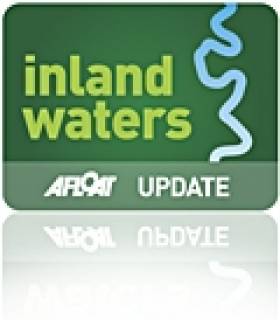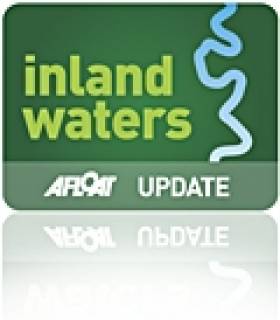Displaying items by tag: Brian Cassells
IWAI & The Waterways of Ireland – New Book By Brian Cassells
#inlandwaterways – When English writer LTC Rolt made a round trip from the Shannon to Dublin in 1946, traversing the Grand and Royal Canals, he was considered an eccentric. In the 1940s commercial traffic on the canals and rivers of Ireland had dwindled to almost nothing. Rolt's notion that these waterways could be a source of joy to leisure boaters was considered pure whimsy. But it was the book Rolt published after this trip, Green and Silver, that was to act as inspiration for the formation of the Inland Waterways Association of Ireland (IWAI) in 1954.
There were other catalysts, too, that fired up the Association. The swing bridge at Athlone was to be replaced with a fixed span. The Royal Canal had already fallen into disrepair and was closed to navigation. Dublin Corporation proposed to lay a sewer along the Grand Canal and fill it in to make a road. The IWAI determined to oppose the authorities in their attempts to impede and close the network of waterways.
IWAI and the Waterways of Ireland is a celebration of sixty years of the Association doing just that. It begins with a rattle through the waterways themselves – the many rivers, lakes and canals. A short history of the IWAI follows, interesting as much for the names listed at the inaugural meeting as for what was achieved. Two of these were Colonel Harry Rice, retired from the British Army, and Sean McBride, dedicated Republican, politician and Nobel prize winner. Brian Cassells, writer and compiler of this book, comments 'I smile when I think of a dedicated Republican being best friends with a retired Colonel of the British Army.'
This fact says much about the compelling charm of boating in Ireland – it is a great social leveller. The portraits of people include George O'Brien Kennedy, boat designer; Syd Shine, showband leader; Rosemary Furlong, RNLI fundraiser; Jim McGarry, skipper. A diversity of people who were passionate about the rivers and canals, the boats and buildings.
The backbone of the IWAI remains the branches, and these are covered in full. It is the reasons for their creation, and the progress made, that make these descriptions come alive. How local opinion in Kenagh on the Royal Canal was certain it would never be re-opened (it was). Volunteers working on the Lagan Navigation clocking up 11,000 hours to restore Ireland's only flight of four locks. Coalisland branch members who possessed not a boat between them, dedicated to saving their canalside heritage.
The IWAI still has a campaigning role. There are notable successes in the book, given their own special pages – Ram's Island on Lough Neagh, the Royal Canal, and the Boyne Navigation. There is hope for the restoration of the Ulster Canal.
Brian Cassells has put together a book of immense charm, lusciously produced, rich in photographs. There is some repetition of facts, perhaps inevitable in a book with many different contributors. Nonetheless it is a valuable record of, and insight into, an organisation which has been instrumental in safeguarding a network of waterways that is among the most beautiful in Europe.
Talk on Moneypenny Canoe Trail
The talk takes place at the Millennium Arts Centre, William Street, Portadown.
More on Northern Ireland's Canoe trails HERE
More on the Moneypenny trail HERE






























































